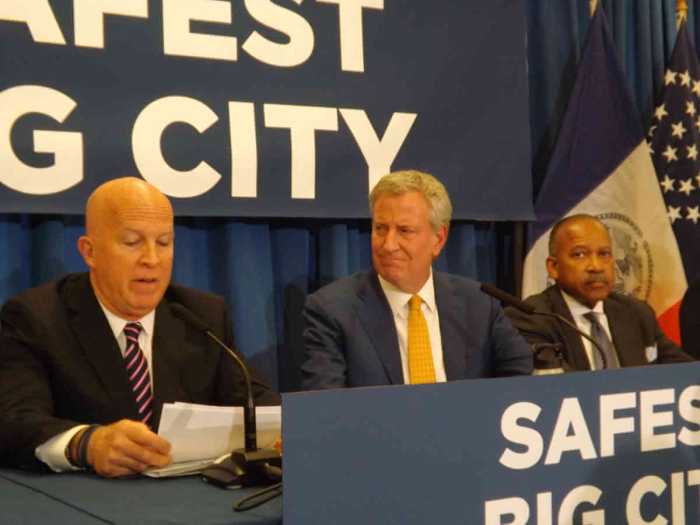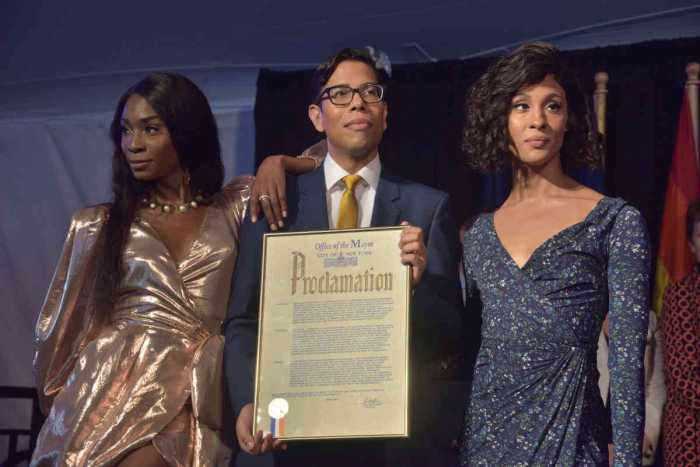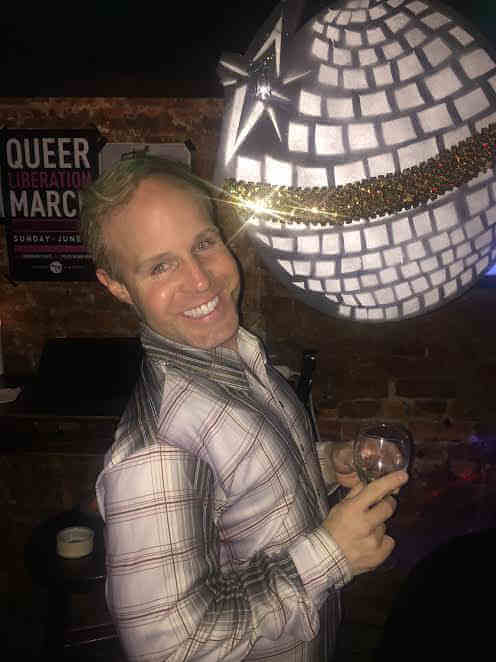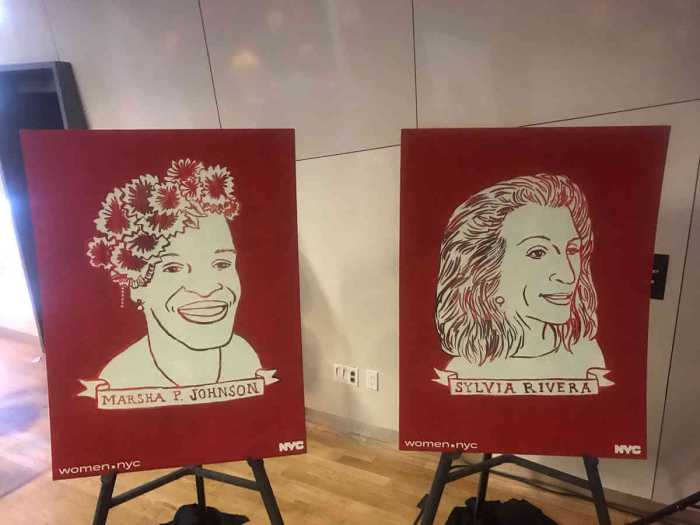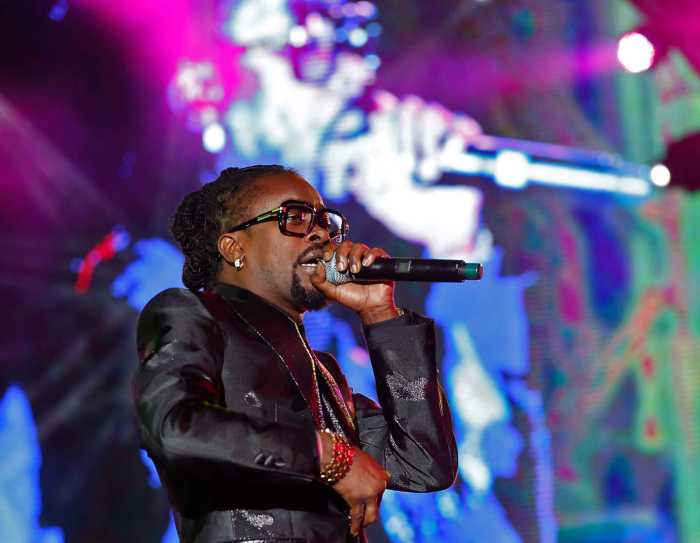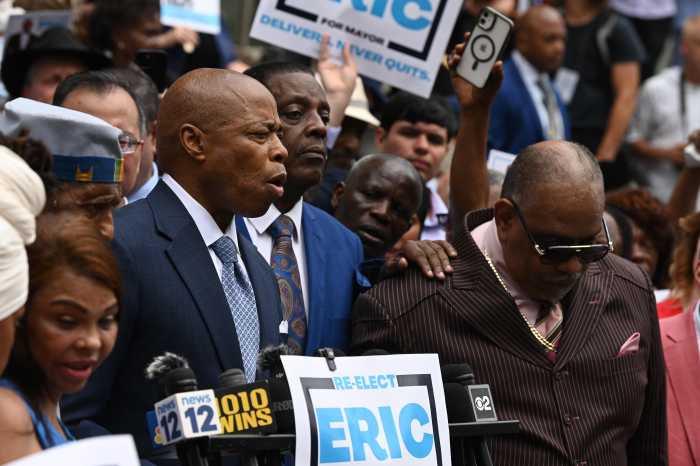New York City First Lady Chirlane McCray at the June 13 Orlando vigil outside the Stonewall Inn. | DONNA ACETO
Earlier this month, I met Picasso.
Picasso comes from a very religious Catholic family in Georgia. His mother, who was diagnosed with bipolar disorder when Picasso was nine, suspected he was gay and sent him to a conversion therapy program with the hope of making him straight.
The staff tried to change the way he walked. They read him one Bible verse after another. They showed him pictures of shirtless men and asked how the pictures made him feel.
Guess what? This so-called “therapy” didn’t work.
When Picasso was 15, he and his mother got into an argument. It was over something small, but he knew she was really angry about something deeper. That’s when he told her, “I’m gay.”
His mother threw his belongings into the front yard and told him to get out. And as hard as things had been until then, they were about to get even harder.
Now he was on his own, living out of a car his grandfather had left him. He was raped by someone he knew and trusted. He began to drink as a way of coping, and it wasn’t long before he developed an addiction to alcohol.
He felt anxious, depressed, and unable to trust anyone. Last year, seeking a fresh start, he sold his car and bought a one-way plane ticket to New York City.
Picasso isn’t alone in his suffering.
One in five Americans experiences a mental illness each year. And if you’re a member of the LGBT community, you’re even more likely to experience mental health challenges.
In New York City alone, gay and lesbian youth experience nearly two times more bullying in school than their straight peers. They are also more than twice as likely to attempt suicide.
That’s the troubling news. The hopeful news is that we do have the power to change the way we think about our mental health. Mental illness can be treated — and, in many cases, prevented. There are many more tools and better understanding of what works. The task before us now is to create more resources, and bring them to the people who need them most.
That’s why we launched ThriveNYC, our action plan to change the way people think about mental illness, and the way city government and its partners deliver services.
With ThriveNYC, we are adding mental health services to every one of our city’s Runaway and Homeless Youth centers, including the Ali Forney Center in West Harlem, where Picasso, who turns 19 in August, finally found the compassion, support, and stability he needed. He has been sober now for over a year. He’s also a budding artist whose sculpture has been displayed at the Museum of Modern Art and whose short film has played at the Tribeca Film Festival. I can’t wait to see what he’ll do next.
The tragedy in Orlando reminded us that for our LGBT brothers and sisters, the simple act of being yourself is an act of bravery. In honor of those we lost, we must channel our sadness and anger into action. We must fight to end intolerance and discrimination. And at the same time, we must also shatter the stigma of mental illness and make it easier for people who are struggling to ask for and find the help they need.
Picasso explained it beautifully: “When it’s easier to speak up, it’s easier to change things.” The LGBT community is filled with so many bright, promising young people like Picasso. Just as he found the strength to seek treatment, so can you.
Don’t suffer in silence. Ask for help. Take the first step toward healing and creating the life you deserve.
New York City First Lady Chirlane McCray is the driving force behind ThriveNYC and spearheads the city’s work on mental health and substance abuse. Any New Yorker who feels they are in crisis can visit lifenet.nyc, call 800-LIFENET, or call 311.


